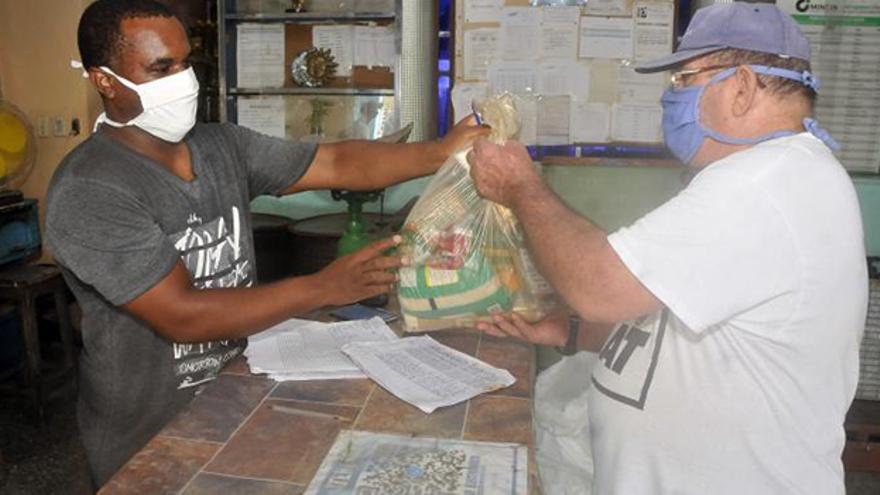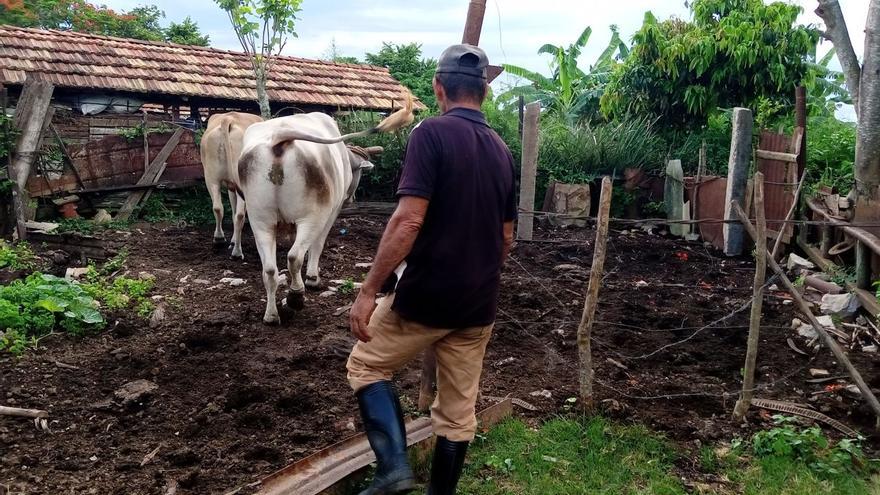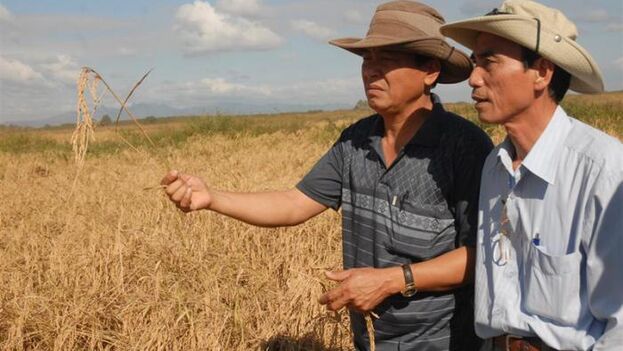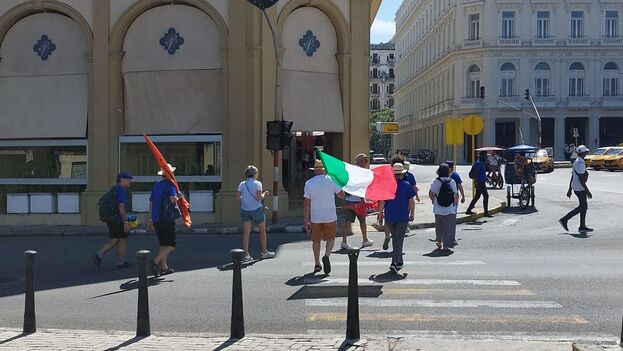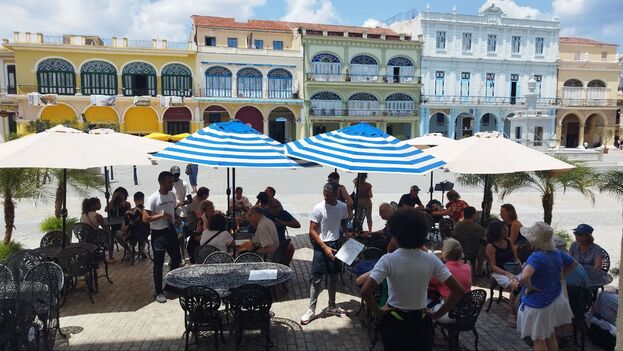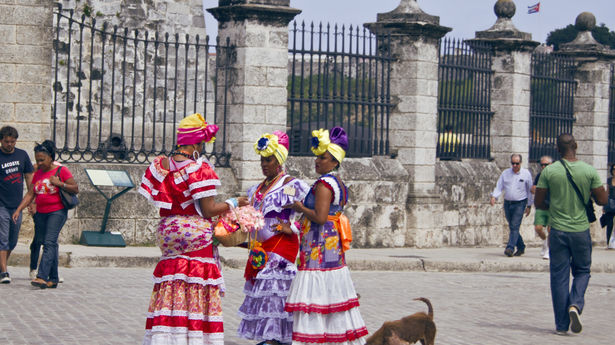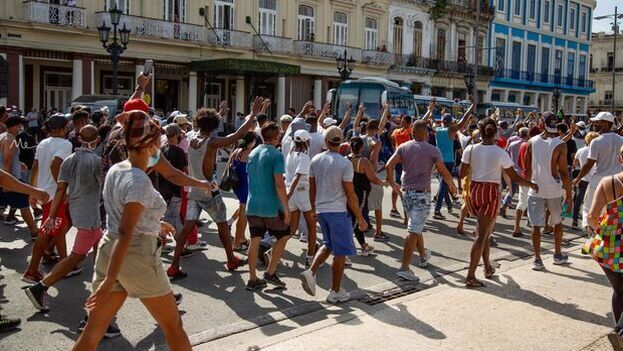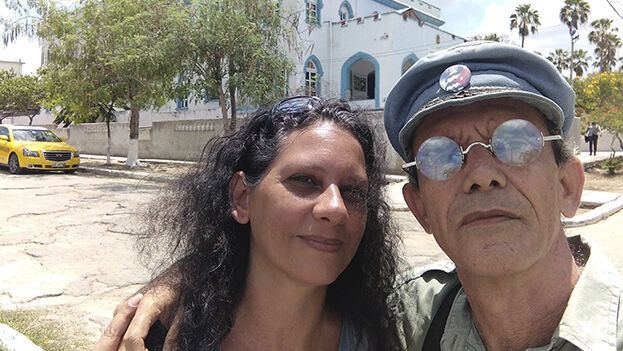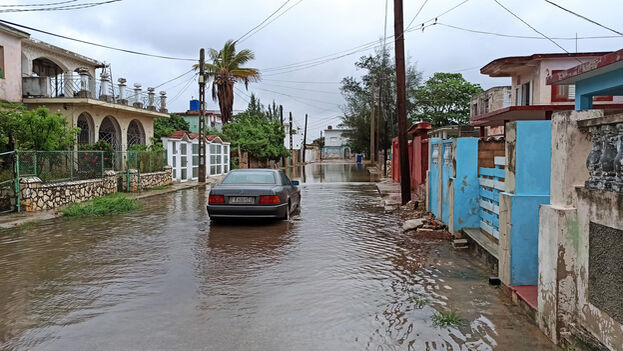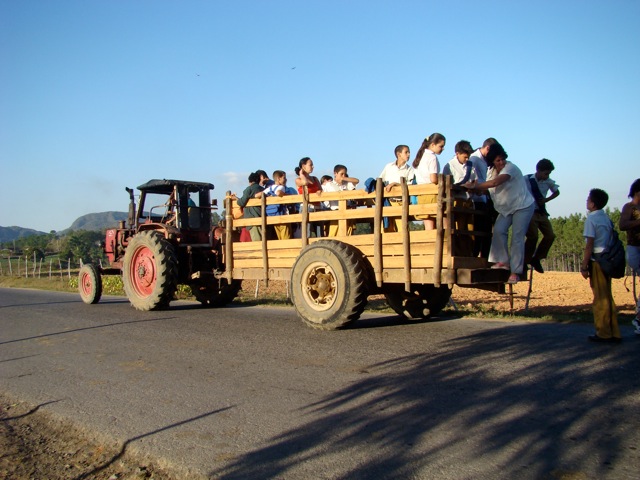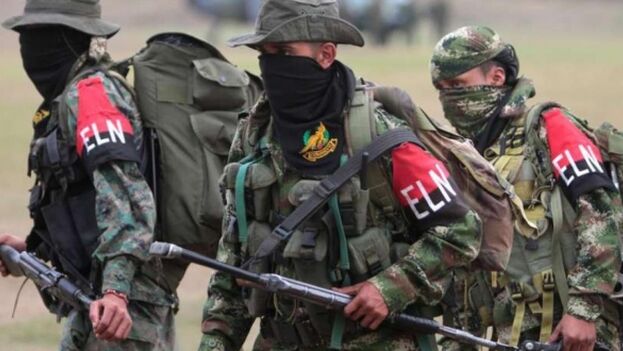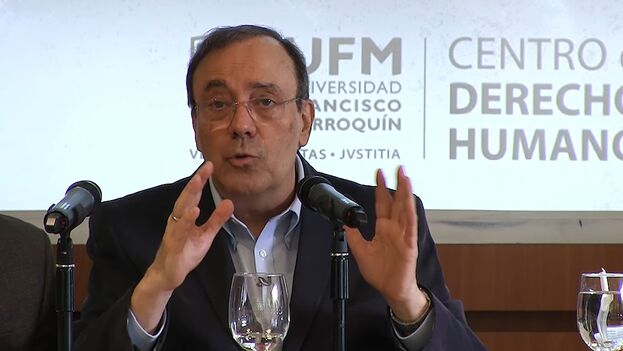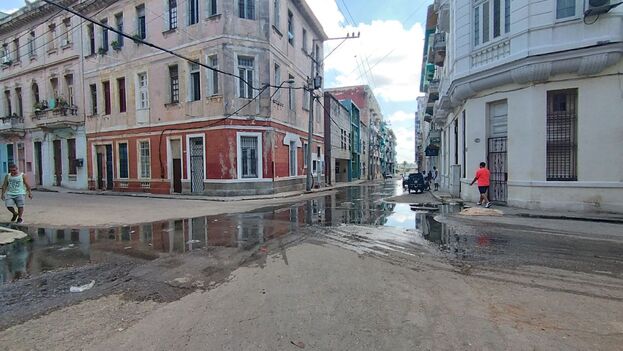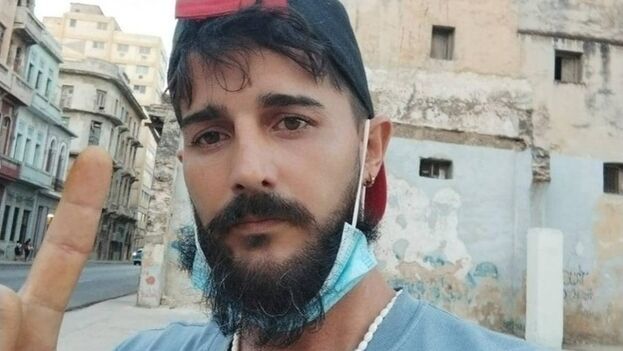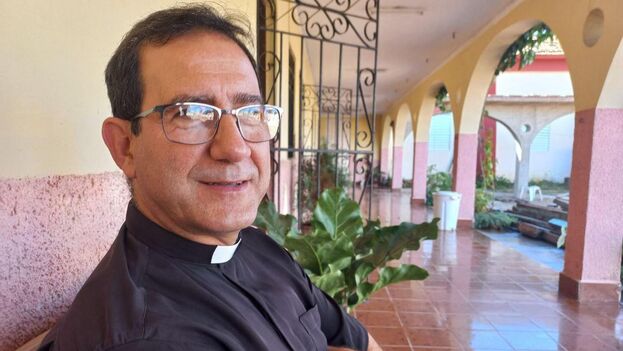
![]() 14ymedio, Xavier Carbonell, Madrid, 22 April 2023 – On a visit to Madrid, a Catholic priest from Camagüey, Alberto Reyes, talks about Cuba as an island out of time. “There’s no present and no future there”, he says, “only the lethargy of continuity”. The most obvious symptom: the ‘re-election’ of Miguel Díaz-Canel, a decisive bet on continuing stalemate and antiquated discussion whilst the country’s place in its allies’ games — those of Russia, Venezuela, Nicaragua and Mexico — becomes increasingly unclear.
14ymedio, Xavier Carbonell, Madrid, 22 April 2023 – On a visit to Madrid, a Catholic priest from Camagüey, Alberto Reyes, talks about Cuba as an island out of time. “There’s no present and no future there”, he says, “only the lethargy of continuity”. The most obvious symptom: the ‘re-election’ of Miguel Díaz-Canel, a decisive bet on continuing stalemate and antiquated discussion whilst the country’s place in its allies’ games — those of Russia, Venezuela, Nicaragua and Mexico — becomes increasingly unclear.
Real life, however, goes on regardless: repression, fear, shortages and many reasons to emigrate, says Reyes, one of the voices inside the Catholic Church most critical of the regime, in conversation with 14ymedio. Not only have repressive actions been gaining ground but also the whole of the repressive environment itself. There are more and more people summoned by the security services and many warning notices issued. Any demonstration against the government is quickly checked. People are very afraid”, he says.
The general situation, the priest explains, is one of “learned defencelessness”, which means that since the 11 July 2021 [11J] protests, Cubans have been “inoculated” with the idea that there’s nothing further that they can do. One year after the protests, interviewed by this journal, Reyes had offered his diagnosis: “As a people we are tired and worn down, and life is ebbing away in the fight for survival; we are a people that has learnt to defend itself in any way it can, and which goes out to march and applaud with energy while at the same time planning a final exit from the country.”
The situation has only got worse, because now the predominant emotion, he says, is desperation and a longing for escape. “As there have now been so many escape routes opened – I’m thinking of Nicaragua, the financial support of the U.S., or the possibility of achieving Spanish citizenship, as well as the illegal method of escape by small boat, which still continues — the focus is firmly on abroad”. There’s an almost universal mindset: “Why would I make myself a target when I’ve got the chance to leave and get away from this nightmare?” continue reading
A general sense of fear is preventing the uprising that many hope for. Reyes says that across the island there are private protests and discussion, as well as small demonstrations against the regime but a protest like that of 11J is very difficult to bring about. “Also, there’s a lack of opposition leadership”, he notes, “Who will coordinate a demonstration? Who will channel the people’s energy? Who will speak out? I don’t rule out the possibility of an uprising, in fact I think it’s quite a strong probability but there are many factors working against it”.
Regarding those already in exile, the priest is pleased that there are many of them who are working seriously towards Cuba’s future. Nevertheless, he says, “change needs to come from within”. “An exile can support, can assist, but it’s not that easy. You do what you can, with integrity”, he adds.
The island’s Catholic Church, on the other hand, has its own limits. The recent visit by Cardinal Beniamino Stella, who asked for “an amnesty or some other form of clemency” for the island’s political prisoners doesn’t seem to have had any impact on the regime, which has continued to demand severe sentences for those who participated in 11J. The island’s Episcopal Conference continues, it would seem, with the same strategy of non-confrontation.
However, Reyes is unequivocal: despite its social impact and works of charity, “the church isn’t a philanthropic organisation nor a political party”. It’s mission is essentially religious although it has not neglected for one minute to accompany the families of political prisoners or the creation of social initiatives to alleviate the people’s misery. The other side, he laments – the prayers and the being close to the people – “isn’t often in the news”.
“Regarding the political and social arena, we try, from where we are, to accompany people in their desperate times. We also try to shine light on people’s consciences and help people to think. If a priest writes an article or an invitation to reflect, I’m happy about that and I share it”, he says. Reyes, just like other priests and clerics on the island, like Castor José Álvarez and Nadieska Almeida, have denounced the regime’s abuses in recent years.
As there’s little sign of the country opening up to a new era, the most urgent problem is the exodus of young people. “I understand that”, he says. “They want to leave, live, make the most of the only life they have. When they can, they go. What’s the result? We have the most aged population in the region”.
Meanwhile, Díaz-Canel’s government, which ratified almost all of its cabinet members’ posts, moves closer every day towards countries like Russia — whose invasion of Ukraine it has witnessed with its own eyes — and local allies like Mexico or Nicaragua. In Reyes’ view, people don’t care much about the regime’s diplomacy. “There are more important things that they have to attend to, like getting daily bread to eat”.
Nonetheless, the arrival of ambassadors and foreign politicians in Havana to greet Diaz-Canel as architect of the continuity of the Castro regimes never ceases to be disheartening: “If they keep on shoring up the system with economic assistance it will last a thousand years and this brings us to the same conclusion that everyone has: the most sensible thing is to escape”.
Translated by Ricardo Recluso
____________
COLLABORATE WITH OUR WORK: The 14ymedio team is committed to practicing serious journalism that reflects Cuba’s reality in all its depth. Thank you for joining us on this long journey. We invite you to continue supporting us by becoming a member of 14ymedio now. Together we can continue transforming journalism in Cuba.

